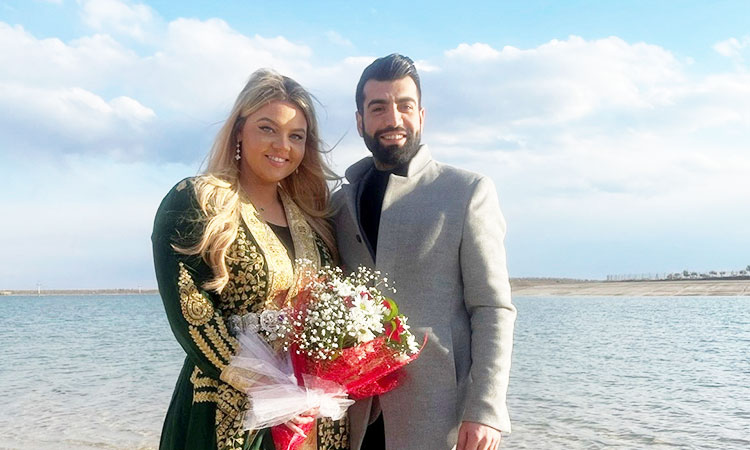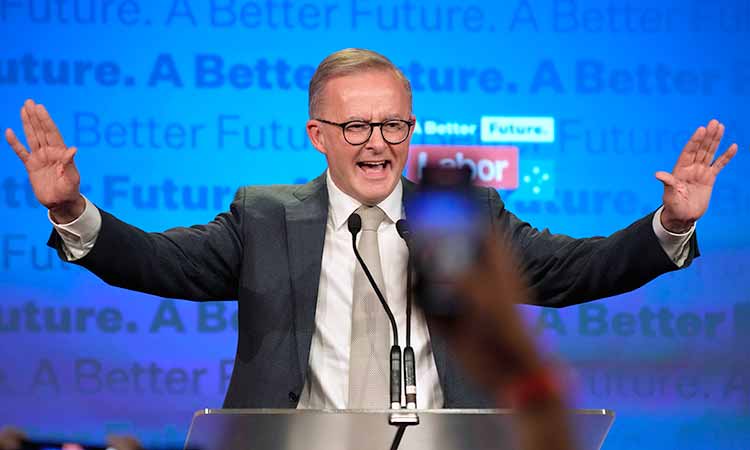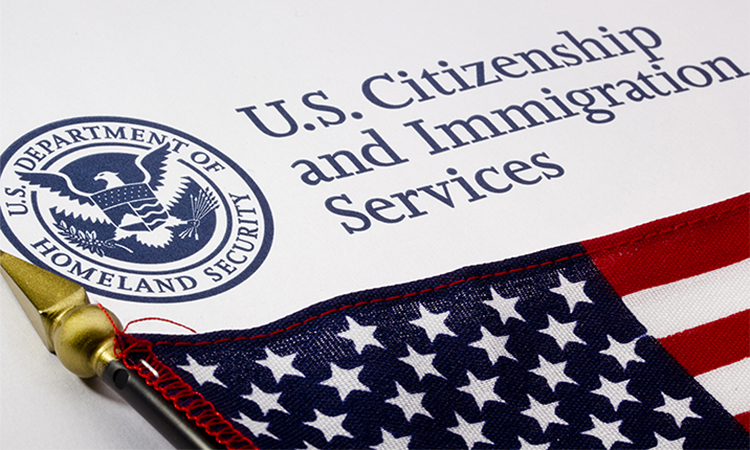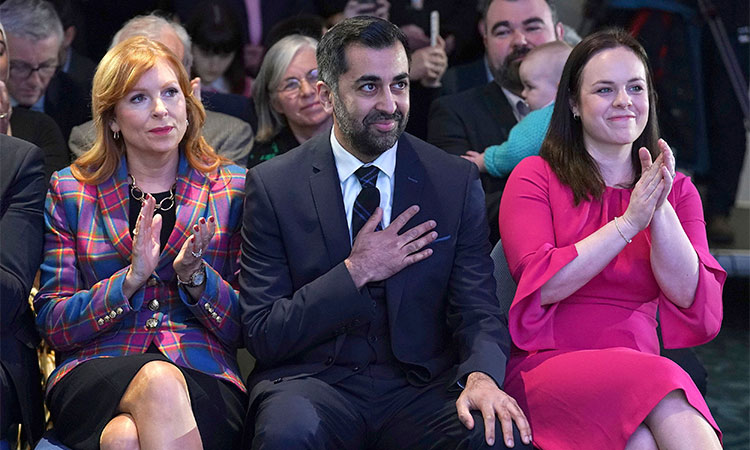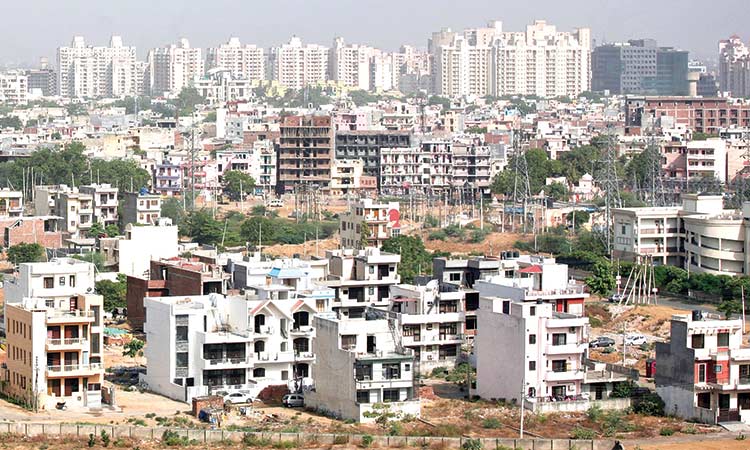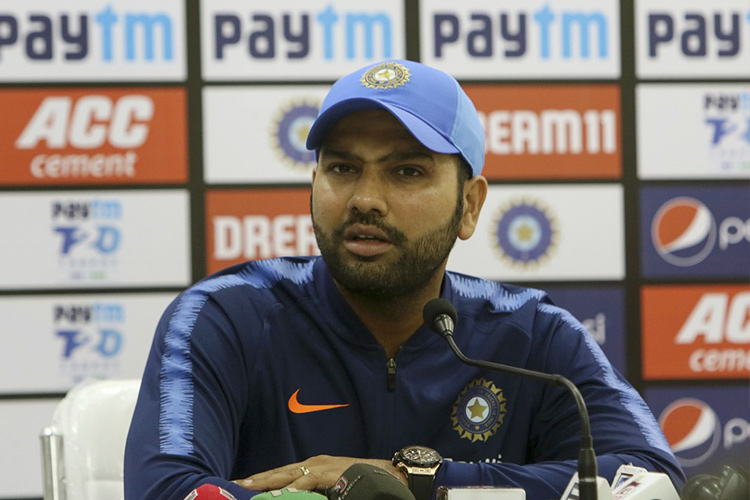France’s tough immigration law causes turbulence
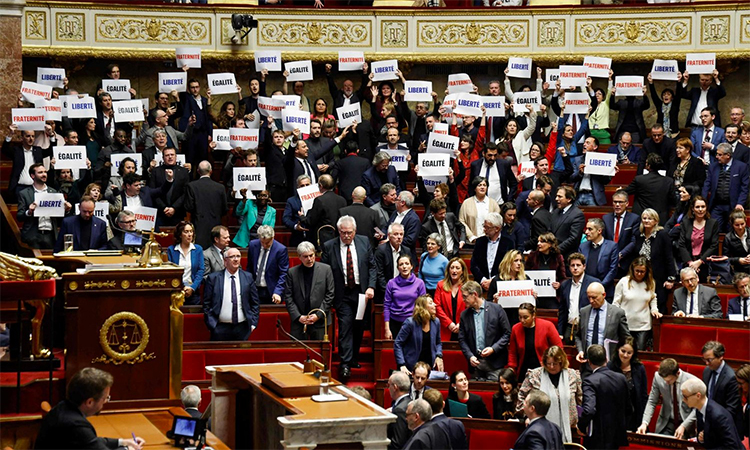
Left-wing coalition NUPES members of parliament hold signs reading "Liberte", "Egalite", "fraternite" French for 'liberty, equality, fraternity', the national motto of France, following the vote and the approval of the draft law to control immigration, at the French National Assembly in Paris. AFP
These are elements favoured by the conservatives. But Macron’s party wanted the national assembly to pass the bill without the support of the far-right party, National Rally, of Marie Le Pen, because Macron had won the last two elections from the votes of the other parties to keep out Marie Le Pen from winning the presidency. So, compromises were made with the conservative party of Republicans. It was a tough call for Macron because many of his party members were opposed to it, 20 of them voted against the bill, 17 abstained, and 131 voted for it. And several ministers gave their resignations to Prime Minister Elisabeth Borne.
Interior Minister Gerald Darmanin said after the vote, “Today, strict measures are necessary. It’s not by holding your nose in central Paris that you can fix the problems of the French in the rest of the country.” Prime Minister Borne defended the bill and told parliament that it “will make our system more efficient because it will drastically simplify our procedure for processing asylum applications, (and) because it will make possible to expel criminal or radicalised foreigners more quickly.”
Marie Le Pen, who had offered to support the bill but the government did not need her party’s support, had however claimed “ideological victory” through the new bill because it was what her far-right had been arguing for – tough stance against immigrants. She said, “We can rejoice in ideological progress, an ideological victory for the National Rally (RN)…”
There was bitter opposition to the bill from the left end of the French political spectrum. French Communist Party leader Fabien Roussel described the passing of the bill: “With this text directly inspired by RN pamphlets against immigration, we are facing a shift in the history of the republic and its fundamental values.” French Human Rights League and 50 other groups issued a joint statement calling it “the most regressive bill of the past 40 years for the rights and living conditions of foreigners, including those who have been long in France.” The leftist Le Monde newspaper said in its editorial, “The political crisis around the immigration is a moment of truth where all the fragilities of Emmanuel Macron’s mandate are coming together.”
President Macron has then made far-right Le Pen happy when he did not want to, and he just managed to keep a safe distance from her to keep her out of the presidency in the 2027 election. Cracks have shown up within his own party, and he was forced to make compromises with the conservative Le Republicans in the text of the bill.
But Macron’s political balancing act hides the harsh reality that France has decided against immigrants like many other European countries and Britain. British Prime Minister Rishi Sunak’s warning that parts of Europe would be overwhelmed by immigrants is gaining ground in Europe’s political circles. But there is also the other side of reality, that Europe is in need of immigrants in the face of its ageing and dwindling population. Europe needs people to keep its economy and society on track, and the immigrants will have to necessarily come from different cultural, social and religious backgrounds. Europeans have no option but to adapt to a multi-racial, multi-religious and multi-cultural society.
